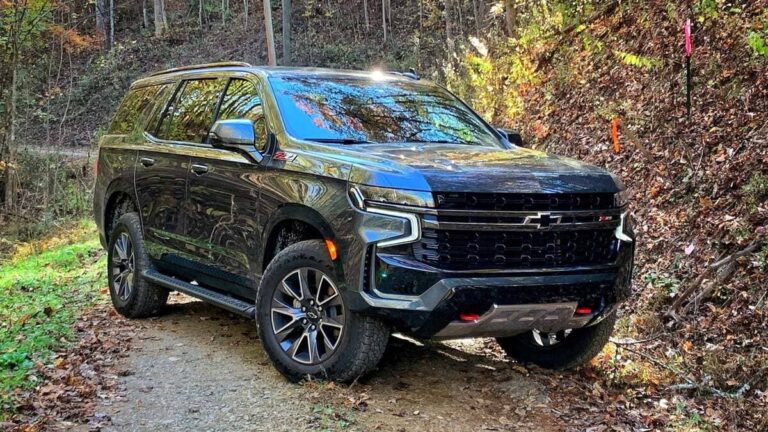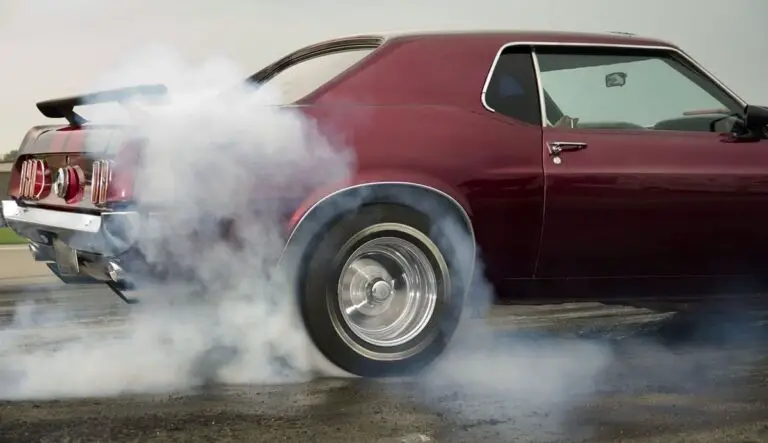Why Is Your Car Making Whining Noises? Find Out the Full Answer Here

It can be unsettling and concerning when you start to hear new strange noises coming from your car’s engine. In particular, high pitched whining noises when accelerating or turning the steering wheel can raise worries that something is seriously amiss.
If your car is making an annoying or concerning whining sound, the most common culprits are the power steering system, serpentine belt, bad alternator bearing, automatic transmission, or brake pads wearing thin.
In this detailed guide, we’ll overview the most common reasons for whining car noises and equip you to diagnoses the root cause in your vehicle:
Table of Contents
Common Causes of Whining Noises in Cars
These systems, components and parts often cause a whining noise or sound in vehicles:
- Failing power steering pump – The power steering fluid pump pressurizes fluid to reduce steering resistance. A failing pump can make a screeching or whining noise especially when turning the steering wheel.
- Low power steering fluid – Insufficient fluid prevents the full pressurization needed to reduce steering friction. This causes the pump to whine struggling to rotate the wheel.
- Loose or worn serpentine belt – The serpentine belt connects components like the power steering pump and alternator to the engine’s crankshaft. A loose, cracked or worn belt prevents smooth spinning and makes a shrieking noise.
- Bad alternator bearing – The alternator relies on well lubricated ball bearings for smooth rotation. Bad bearings cause scraping, grating and whining noises.
- Failing automatic transmission – Automatic transmissions rely on pressurized hydraulic fluid. Declining fluid pressure as transmissions wear out cause high pitched whining in higher gears.
- Worn brake pads – Brake pads worn down to the metal backing plate cause high frequency squealing, scraping and whining noises when braking due to metal on metal contact.
Now let’s overview each of these common culprits in more detail and equip you to diagnose which one is causing your car to whine!
What Does a Failing Power Steering Pump Sound Like?
The hydraulic power steering fluid pump is a common source of whining noises, especially high pitched screeching when turning the steering wheel. Here are the telltale signs your power steering pump is failing:
High pitched whining noise intensifies with more rotations of the steering wheel – More rotations increases the load on the power steering pump and struggling components make more noise when under strain.
Noise gets louder with continual steering wheel rotations – Adding strain continuously to the failing components, the whining reaches peak loudness after multiple rotations as things get pushed to their limits.
Power steering fluid may be leaking from the pump – Seals wear out over tens of thousands of miles, allowing fluid to escape and pump components to scrape and whine from inadequate lubrication and pressure.
The fluid reservoir level drops – Related to leaks, the fluid level can drop substantially requiring frequent refills as seals wear down further.
Here is a handy infographic overview of symptoms of a failing power steering pump:
If you suspect your power steering pump based on the sounds and symptoms above, here is how to further diagnose the issues:
How to Check Power Steering Fluid
It’s prudent to start by checking the power steering fluid reservoir before assuming you need to replace the whole pump assembly:
Locate the fluid reservoir, usually under the hood in close proximity to the power steering pump and gearbox assembly it connects to
Check oil level on the dipstick. The level should be between min and max indicators.
Top up reservoir fluid if low. Use appropriate power steering fluid for your vehicle make and model as indicated in the owner’s manual
Inspect fluid color and quality. Fluid should have clear appearance without brown colorization from oxidation indicating aging fluid needing a complete flush/replacement
Adding fluid can provide short term relief for whining issues by increasing pressure and lubrication, but does not fix severely worn seals or internal pump wear necessitating a professional replacement.
When to Replace A Serpentine Belt
The serpentine belt, also called accessory belt, is a rubber v-shaped belt connecting engine drive pulleys to accessories like the power steering pump, alternator, AC compressor and sometimes water pump. Here’s what causes shrieking serpentine belt noises and when to replace:
Visual cracks, glazing or fraying – Exposure to high heat and mechanical strain causes belts to develop surface cracking over years indicating imminent failure risk
High pitched squealing on cold startup – A loose belt slips on the pulleys causing a short squeal noise on ignition before fully warmed up and expanded
Belt slipping off pulleys – Severely worn, warped or cracked belts can disgourge from the engine pulleys entirely leading to overheating and battery discharge
Catching these warning signs early and replacing fraying, cracked or loose belts prevents being left stranded with disabled charging or steering. For maintenance, most manufacturers recommend replacing serpentine belts every 50-70k miles.
Bad Alternator Bearing Whining
The alternator relies on precision ball bearings inside the pulley assembly allowing thousands of RPM smooth rotation to generate electricity. Here are the telltale signs of worn alternator bearings causing whining:
High pitched whining noise intensity changes with engine RPM – More alternator load and rotation speed makes the damaged bearings shriek louder
Whining starts as soon as ignition is turned on before engine starts – Battery voltage activates the alternator explaining early noise onset before engine RPMs increase
Get alternator inspected by a certified mechanic if bearing whining present – The noise indicates potential impending alternator failure needing replacement to protect the electrical system
Run down, grinding alternator bearings left unattended lead to hard system failures down the roadside. Catching binding and worn bearings early prevents getting stranded.
Transmission Whining Noise When Accelerating
Automatic transmissions rely on pressurized hydraulic fluid to change gears smoothly. Declining pressure causes metallic whining noises, especially noticeable when accelerating:
High pitched whining noise is most noticeable in higher gears – In top gears, the transmission is under greatest strain exacerbating any inadequately pressurized components
The noise is most pronounced when the transmission upshifts or downshifts between gears – Gears slamming into alignment without adequate lubrication pressures causes metal-on-metal whining
Transmission whining tends to increase in volume the higher the vehicle speed – Higher road speeds keep the transmission locked in higher gears straining already pressurized components
If you notice the transmission whining getting louder over time, it likely indicates internal seals and pumps are wearing out apace, dropping fluid pressure incrementally with use. Catching transmission issues early by inspecting fluid levels and quality can prolong more expensive rebuilds.
Why Do Brakes Squeal or Whine?
The high frequency metal-on-metal squealing noises brakes make when pads wear down to the backing plate are impossible to ignore and very unsettling! Here are the reasons brakes make whining and squealing noises:
Worn-out brake pads reduced to metal backing plate – Friction material wearing fully down to the metal plate makes loud squelching and whines from metal on metal contact
Brake pads not aligned properly causing uneven wear – Improper alignment accelerates wear rates of pads. Uneven pad wear then causes unbalanced braking and chatter
Built up of debris or rust on rotor – Contaminants stuck to rotors grind between pad surfaces emitting squealing and scraping
Catching worn brake pads early before they start whining prevents both damage to rotors and unsafe braking. Typically pads need replacement every 30-60k miles.
Other Potential Causes of Whining Noises
In addition to the most common system culprits overviewed above, here are some other potential causes of whining and squealing noises to complete your diagnostic awareness:
Drive belt – Like the serpentine belt, the drive belt connected to the engine can develop cracks and looseness making chirping noises.
Wheel bearings – These allow smooth tire rotation and can emit a whining tone when insufficiently lubricated.
Electrical components – Various engine electrical pumps, actuators and fans rely on well oiled bearings that can fail over time and screech with operation.
Loose fasteners – Check for any loose pulleys, gears or subassemblies that may squeak and whine until tightened down properly.
When to Seek Professional Help
To recap, common causes of whining noises traced back to:
- Power steering system
- Serpentine and drive belts
- Alternator bearings
- Transmission issues
- Worn brake pads
We’ve equipped you to conduct some diagnostics like checking fluid levels and belt conditions. However if you’ve inspected the obvious issues and are still plagued by persistent whining noises it’s prudent get professional help:
The noise persists after inspecting and addressing simple issues – You’ve topped up the power steering fluid, adjusted belt tensions, confirmed pads not worn, but the whining continues
You cannot isolate where exactly the noise originates – Pinpointing the root cause assembly making the noise proves difficult leading to guesswork replacing parts
You’re concerned the noise indicates failure of a key mechanical component -Certain whining noises signal transmission, alternator or other integral system failures
Consulting a trusted professional mechanic or dealership prevents spending on guesses and protects you from being stranded when integral components inevitably fail. They have specialized tools and diagnostics to isolate root causes.
Conclusion
Hearing unfamiliar whining and squealing noises emerge in your vehicle can be worrying and bothersome. In this comprehensive guide we’ve equipped you to diagnose the most common culprits like power steering systems, worn belts and bearings, transmission issues and worn brake pads. Caught early, these issues can be addressed affordably before leading to major breakdowns and becoming stranded roadside. But some whining noises signal imminent component failures requiring professional diagnosis and repair. With this overview of the most common reasons for cars making whining noises, you’re equipped to conduct some basic diagnostics and determine if expert auto shop help is prudent. Stay safe out there on the roads!






